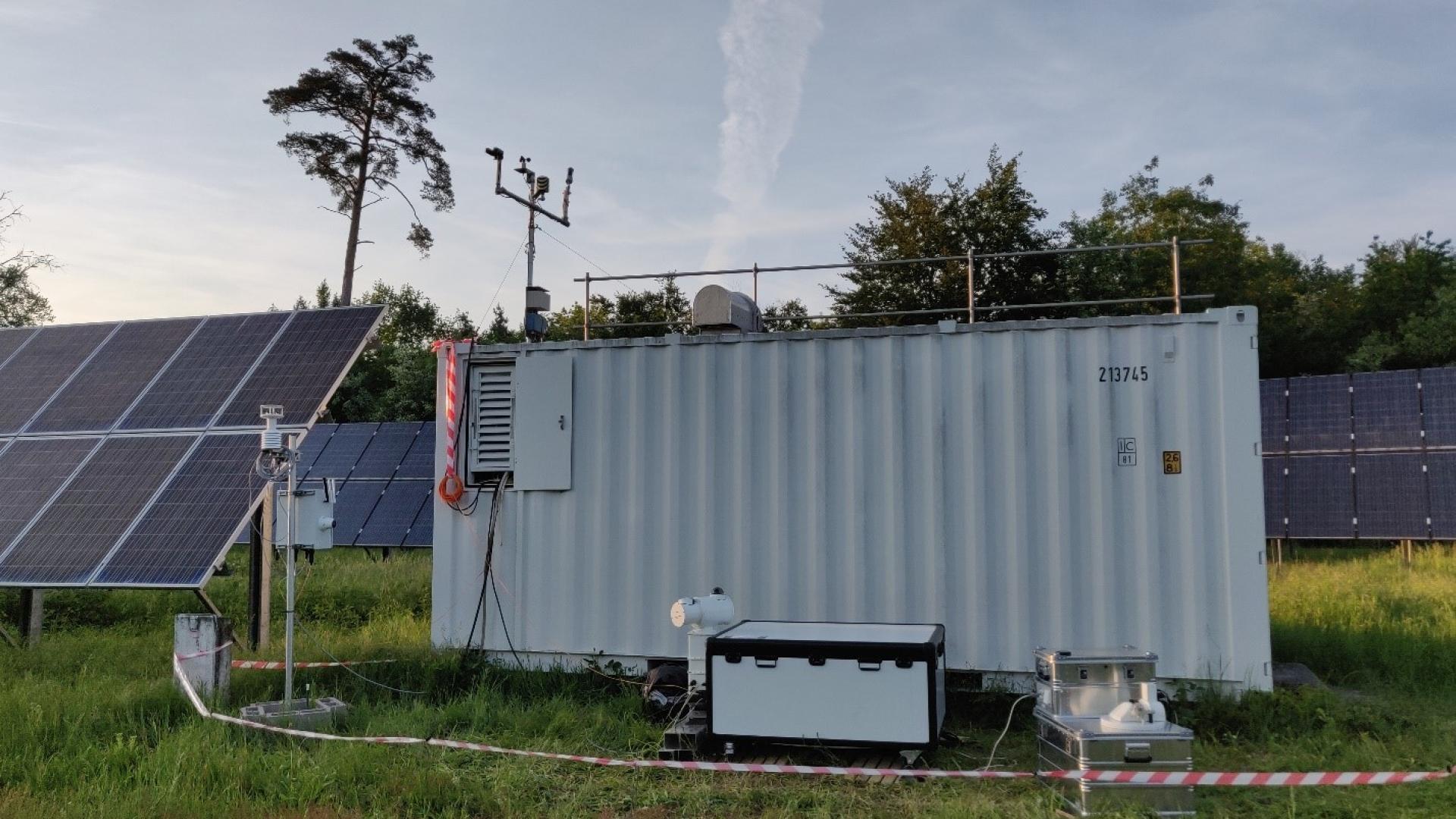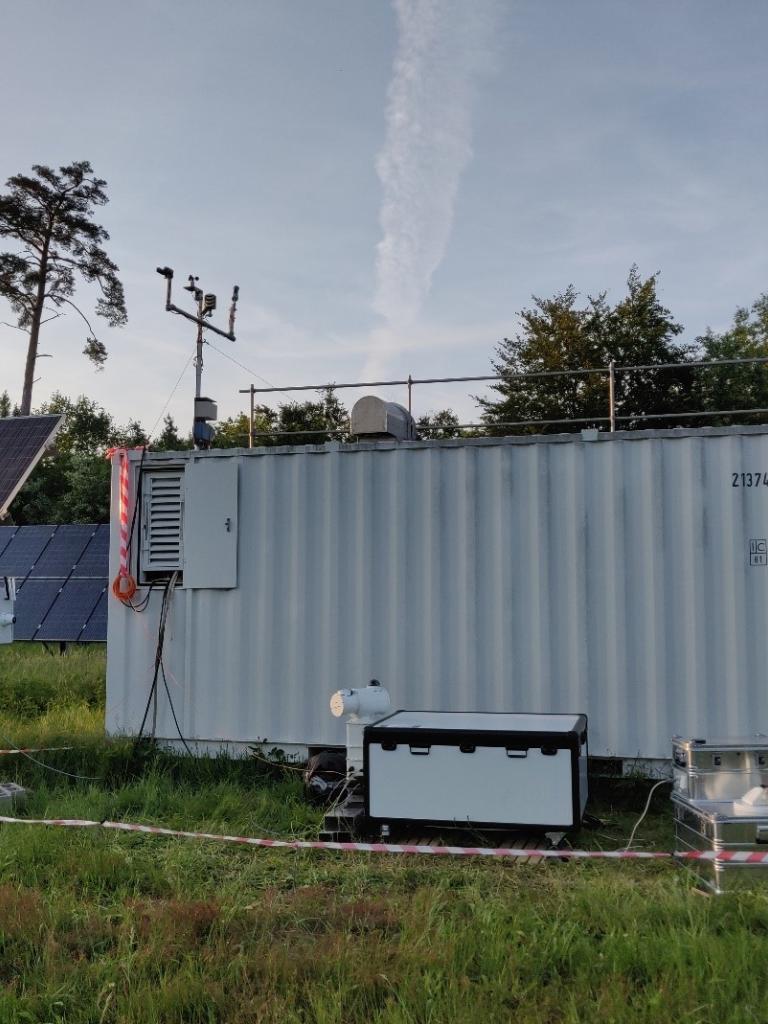28 October 2025
14 October 2025
About
This service supports the development of scientific validation methods and reference data pre-processing and provision, for the operational validation and monitoring of products from the Copernicus CO2 Monitoring (CO2M) constellation of satellites. The relevant CO2M products comprise of CO2/CH4 Greenhouse Gas products (GHG) and Solar Induced Fluorescence (SIF), with auxiliary products of nitrogen oxide (NO2) tropospheric columns, and aerosol abundance & optical properties.
The main goals of the service are to:
- continue, maintain, and finalise the existing preliminary definitions of requirements for validation methods and tools to be applied for the validation and monitoring of CO2M products;
- provide ground-based reference data as supplied by relevant ground-based measurement providers, both in its original form, as well as pre-processed for the needs of the central CO2M Calibration and Validation facility (CO2M Cal/Val) and the validation of CO2M products.
Note that the execution of the CO2M product validation, and therefore the application of the methods and tools as well as the use of the data developed under this service, will be led by the EUMETSAT CO2M Cal/Val team.
This service is provided by the Royal Belgian Institute for Space Aeronomy (BIRA-IASB), in partnership with The Inversion Lab (iLab) S&T Netherlands B.V. (S&T), and Matthias Buschmann Environmental Research (MBER), with BIRA also providing the service management.
Objectives
To achieve the overall goal of this service, i.e., support the development of the CO2M Cal/Val monitoring and product validation, the work is split into three main areas:
- Expanding on previously developed methods and tools of Phase I of the study, in order to support the validation and monitoring of the main CO2M user products.
- Preparing for and carrying out the pre-processing and operational provision of ground-based reference data, both in their original form as well as in the form of dedicated CO2M ground-based products (GBPs). This particularly concerns data from the TCCON and COCCON networks (for XCO2 and XCH4), as well as from NDACC-FTIR (XCH4), Pandonia (XCO2, XCH4, NO2, as available), NDACC NO2, and AERONET, or any other network considered suitable by the service for operational CO2M product validation and monitoring.
- During the commissioning of CO2M products, preparing for and supporting the EUMETSAT Cal/Val team in applying the above resources, and supporting the transitioning of these resources into operations for continuous product monitoring and recurrent delta-validation campaigns.
Overview
This service comprises the following activities:
Activity 1: Expand on the existing definition of requirements, methods, and tools to support the validation and monitoring of the main CO2M user products
The service will define and specify a set of methodologies (pre-processing, colocation criteria, validation methods) to be applied when using ground-based product (GBP) reference data for the validation of the CO2M user products. These methodologies will be based on existing specifications and methodologies for such validation tasks for products from relevant existing missions like GOSAT, OCO-2/3, Sentinel-5P, Sentinel-5, or, where defined and available, from those specified for relevant future missions. Relevant results, specifications and software from Phase I will also be evaluated and applied accordingly under this activity.
Prototype processing software will be developed to support EUMETSAT in carrying out GHG and NO2 product validation for use during commissioning and for potential integration into the Cal/Val processing facilities thereafter. Based on the prototype processing system, the service will produce updated accuracy, timeliness, and availability requirements for dedicated ground-based products as needed. It will also maintain the related station and GBP provider specific capabilities and target requirements information in the CO2M Ground-Based Network Reference Product Performance Requirements document.
Activity 2: Maintain the CO2M reference-data resource database.
The service will maintain the existing reference data and ground-based station network database, currently hosted at co2m.aeronomie.be. The functionality and content of the database will be updated as needed with respect to missing or newer information available. User requests will be answered and supported as needed.
Based on the above resource database and by expanding upon it, the service will identify and update the list of suitable ground-based reference measurements, their station location, and data providers, as well as their suitability for and impact on CO2M product validation.
Activity 3: Design the operational collection and the provision of ground-based reference data to the EUMETSAT CO2M Cal/Val facilities.
An interface to the central GBP processing and Cal/Val facility at EUMETSAT (developed under separate activities) will be established for the provision of XCO2 and XCH4 ground-based reference data from the TCCON and COCCON network. The service will also establish an initial list of potential data providers which are prepared to deliver data through such an interface, for the support of the CO2M product commissioning and/or long-term monitoring needs.
The service will specify and prepare for the management of the future operational (continuous, well-monitored, and timely) provision of relevant TCCON and COCCON data and other data required by CO2M (NDACC-CH4, NDACC-NO2, and AERONET) for product validation, fulfilling the requirements as outlined in the CO2M Ground-Based Network Reference Product Performance Requirements document. A ground-based network-data provision framework will be proposed, enabling the sustainable and timely provision of relevant data through an adequate funding and data management policy and methods for the management of all related contractual as well as financial aspects (e.g. data-provision service fees).
Activity 4: Develop and provide an operational CO2M GBP data processing system supported by EUMETSAT specifications and establish the operational provision of original as well as pre-processed GBP data.
The service will provide GBPs to the EUMETSAT Cal/Val facility, both with their original content (network data products) as well as applying the dedicated processing for the purpose of CO2M Cal/Val and monitoring. For the latter, EUMETSAT will provide the specifications for the dedicated processing as well as the definition of the CO2M GBP content and format.
The GBP data will be provided starting with the commissioning of the first CO2M platform and in an operational manner with product provision and data quality performances as specified in the requirements established under Activity 1.
The relevant original ground-based reference data from the networks, as well as the dedicated CO2M GBPs, will be provided through the same interface and mechanisms established under Activity 3 to the EUMETSAT Cal/Val facility, both during commissioning as well as continuously during operations.
Activity 5: Prepare for and support the CO2M Cal/Val team during the commissioning of CO2M products and their transition into operations
The service will contribute to the commissioning phase of the CO2M products by providing support to EUMETSAT for product validation, concerning the application of the developed methods under Activity 1 and the use of all specified and available ground-based reference data. The team will contribute to the integration of the relevant and applicable methods into the EUMETSAT Cal/Val and monitoring facilities for the support of CO2M operations. As part of this task, the contractor will also operate the ground-based network-data, processing, and provision framework, and associated funding and data management policy, as proposed in Activity 3.

